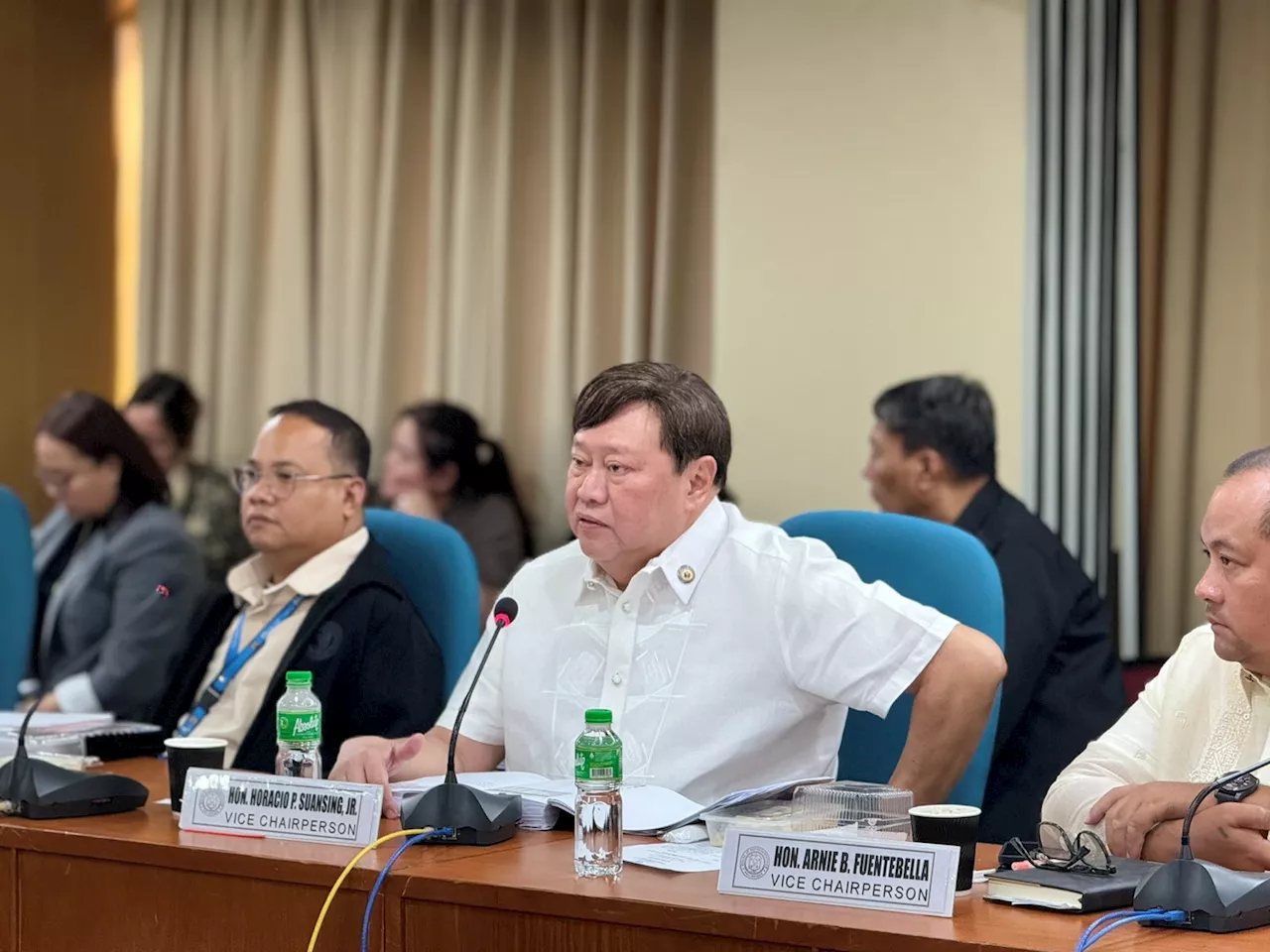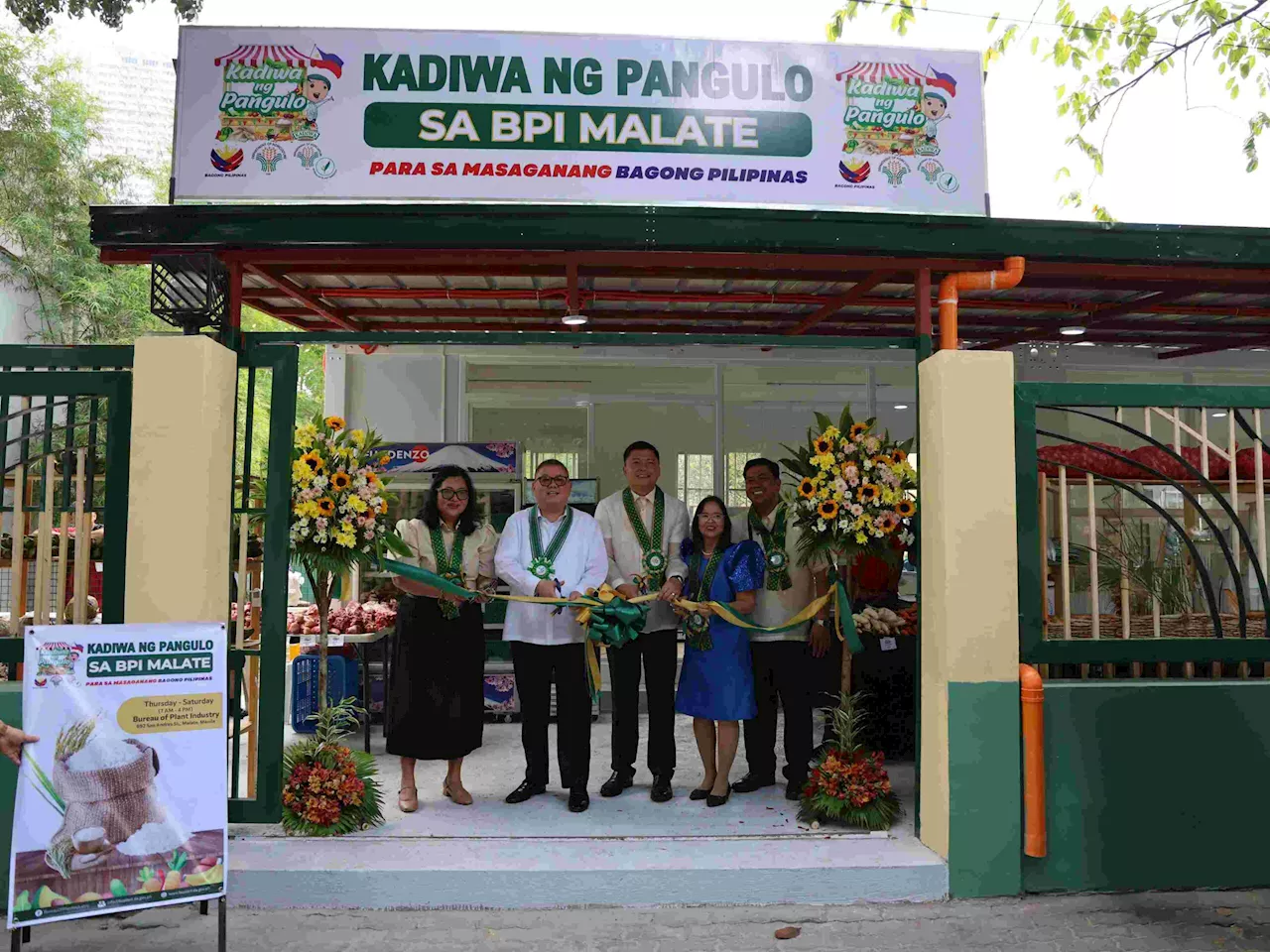The Bureau of Plant Industry (BPI) marks its 95th anniversary, highlighting its commitment to climate-resilient agriculture for food security in the Philippines. The agency emphasizes technological innovations, sustainable practices, and research to address climate change's impact on Philippine agriculture.
The Bureau of Plant Industry ( BPI ) is celebrating its 95th anniversary, marking a significant milestone in Philippine agriculture. The agency is reaffirming its commitment to advance sustainable agricultural practices and ensure food security for the nation amidst the escalating challenges of climate change . Climate change poses a significant threat to Philippine agriculture, impacting crop yields, exacerbating food insecurity, and jeopardizing the livelihoods of millions of farmers.
Extreme weather events such as droughts, floods, and typhoons disrupt planting and harvesting cycles, leading to crop losses and economic instability. Rising temperatures also affect crop growth and development, impacting productivity and quality.In response to these challenges, the BPI is utilizing technological innovations as a key strategy to enhance climate resilience and ensure food and nutrition security. The agency has been actively developing climate-resilient crop varieties through crop breeding programs. Similarly, biotechnological techniques, such as tissue culture for mass production of true-to-type and disease-free planting materials are given emphasis. These efforts aim to develop crops more tolerant to drought, heat, and flooding, ensuring consistent yields even under challenging conditions. Furthermore, the BPI promotes sustainable agricultural practices, such as organic agriculture, conservation agriculture, and integrated pest management, to enhance soil health, reduce reliance on synthetic inputs, and mitigate greenhouse gas emissions. These practices improve environmental sustainability and bolster crop resilience and productivity. Strengthening agricultural research and development is another key focus area for the BPI. The agency fosters strong collaborations with academic institutions, research centers, and international organizations to leverage agricultural research and development expertise and resources. The BPI also plays a crucial role in disseminating research findings and technologies to farmers through training programs, workshops, and demonstration farms. To ensure the availability of high-quality planting materials, the BPI implements a rigorous seed certification program and supports seed production and distribution systems. The agency also promotes the establishment of community seed banks to conserve and exchange locally adapted seed varieties, enhancing agricultural biodiversity and food security. The BPI also addresses food and nutrition security by promoting diversified diets and encouraging the cultivation and consumption of diverse crops, including fruits, vegetables, and legumes, to improve nutritional outcomes and reduce the risk of malnutrition. The agency also supports urban and peri-urban agriculture initiatives, providing opportunities for urban dwellers to grow their food and improve access to fresh, nutritious produce.Innovation is crucial for addressing the challenges of climate change and ensuring food and nutrition security in the Philippines. Developing climate-resilient crop varieties is critical for maintaining agricultural productivity in the face of extreme weather events. These varieties can withstand drought, heat, and flooding, ensuring consistent yields and minimizing production losses. Sustainable agricultural practices, such as organic farming and conservation agriculture, boost soil health, reduce environmental impact, and improve crop yields and resilience to climate change. The application of modern technologies, such as precision agriculture and biotechnology, can significantly enhance agricultural productivity and efficiency. These technologies can help farmers optimize resource use, minimize environmental impact, and improve the quality and quantity of agricultural output.BPI’s roots date back to 1930 when it became a distinct entity within the Bureau of Agriculture. This pivotal step, formalized by Republic Act No. 3639, marked a dedicated focus on plant research and crop production, laying the foundation for the agency’s crucial role in advancing Philippine agriculture. The early years witnessed a period of organizational refinement. The Reorganization Law of 1932 (Republic Act No. 4007) streamlined the BPI’s structure, establishing divisions for administration, plant investigation, agricultural extension, plant sanitation, and plant propagation. This framework provided a more focused approach to addressing the evolving needs of the agricultural sector. Subsequent years saw further organizational adjustments. In 1936, General Memorandum Order No. 186 outlined the merger of the Home Economics Division of the Bureau of Science with the Agricultural Chemistry Section of BPI, creating the Plant Utilization Division.
Agriculture Climate Change Food Security Philippines Bureau Of Plant Industry BPI Climate Resiliency Sustainable Agriculture Crop Varieties Research And Development
Philippines Latest News, Philippines Headlines
Similar News:You can also read news stories similar to this one that we have collected from other news sources.
 DA body files rap vs. trading firm for food safety lapsesThe Bureau of Plant Industry (BPI) said it filed a complaint against Betron Consumer Goods Trading for alleged smuggling of fresh carrots and yellow
DA body files rap vs. trading firm for food safety lapsesThe Bureau of Plant Industry (BPI) said it filed a complaint against Betron Consumer Goods Trading for alleged smuggling of fresh carrots and yellow
Read more »
 PH Lawmakers Probe Rice Import Discrepancies Involving Davao BusinessmanPhilippine lawmakers are investigating alleged discrepancies in rice importation records linked to a Davao-based businessman and his companies. Representative Horacio Suansing Jr. raised concerns about a significant difference between the volume of rice imported and the amount authorized by the Bureau of Plant Industry (BPI). Suansing called for investigations by the Bureau of Internal Revenue (BIR) and the Philippine Competition Commission (PCC) to ensure accountability and transparency in the rice importation process.
PH Lawmakers Probe Rice Import Discrepancies Involving Davao BusinessmanPhilippine lawmakers are investigating alleged discrepancies in rice importation records linked to a Davao-based businessman and his companies. Representative Horacio Suansing Jr. raised concerns about a significant difference between the volume of rice imported and the amount authorized by the Bureau of Plant Industry (BPI). Suansing called for investigations by the Bureau of Internal Revenue (BIR) and the Philippine Competition Commission (PCC) to ensure accountability and transparency in the rice importation process.
Read more »
 House Committee Confirms 'Tara' System Persists in Bureau of CustomsThe House of Representatives Quad Committee has confirmed the existence of a 'tara' system, or grease money, within the Bureau of Customs (BOC). This comes after lawmakers revisited the 2017 smuggling of P6.4 billion in illegal drugs. The committee heard testimonies from former BOC commissioners who admitted to the prevalence of the 'tara' system and its detrimental effects on government revenue, national security, and the rule of law.
House Committee Confirms 'Tara' System Persists in Bureau of CustomsThe House of Representatives Quad Committee has confirmed the existence of a 'tara' system, or grease money, within the Bureau of Customs (BOC). This comes after lawmakers revisited the 2017 smuggling of P6.4 billion in illegal drugs. The committee heard testimonies from former BOC commissioners who admitted to the prevalence of the 'tara' system and its detrimental effects on government revenue, national security, and the rule of law.
Read more »
 Davao City Business Bureau Urges Early Renewal of Business PermitsThe Davao City Business Bureau is encouraging all taxpayers to renew their business permits before the January 31st deadline to avoid congestion at application and payment venues. Taxpayers are advised to go to their designated district offices or the Business One Stop Shop (BPOSS) to complete the renewal process.
Davao City Business Bureau Urges Early Renewal of Business PermitsThe Davao City Business Bureau is encouraging all taxpayers to renew their business permits before the January 31st deadline to avoid congestion at application and payment venues. Taxpayers are advised to go to their designated district offices or the Business One Stop Shop (BPOSS) to complete the renewal process.
Read more »
 Brian Poe backs frontliners during Bureau of Quarantine’s 125th anniversary CelebrationManila, Philippines - FPJ Panday Bayanihan partylist first nominee Brian Poe expressed support for frontliners during the Bureau of Quarantine’s (BOQ)
Brian Poe backs frontliners during Bureau of Quarantine’s 125th anniversary CelebrationManila, Philippines - FPJ Panday Bayanihan partylist first nominee Brian Poe expressed support for frontliners during the Bureau of Quarantine’s (BOQ)
Read more »
 Customs bureau deploys money-sniffing dogs at NAIAMANILA, Philippines — Sniffing dogs have been stationed at the Ninoy Aquino International Airport (NAIA) to detect large amounts of money that passengers may try to secretly take out of the country.
Customs bureau deploys money-sniffing dogs at NAIAMANILA, Philippines — Sniffing dogs have been stationed at the Ninoy Aquino International Airport (NAIA) to detect large amounts of money that passengers may try to secretly take out of the country.
Read more »
